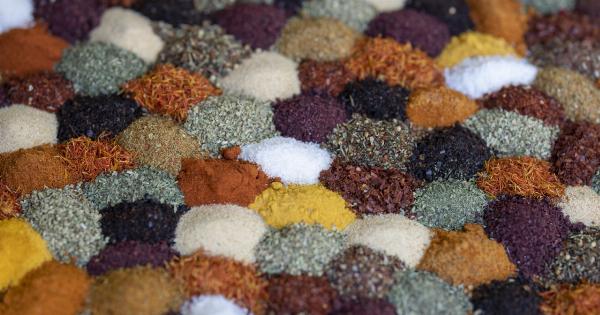When you think of fungi, you might have visions of mushrooms popping up after a rainy day, or even the unpleasant sight of mold growing on your bread. However, fungi are much more than just these everyday encounters.
In fact, certain types of fungi have been found to possess remarkable anti-cancer properties. These incredible organisms, commonly found in nature, have the potential to revolutionize cancer treatment and offer hope to millions of patients worldwide.
Fighting Cancer with Fungi: The Promise of Medicinal Mushrooms
Throughout history, traditional healers have utilized various mushrooms for their medicinal properties. Today, modern science is uncovering the secrets behind these age-old remedies.
Several species of mushrooms have been identified as natural cancer fighters, containing compounds that exhibit potent anti-tumor effects.
1. Lion’s Mane (Hericium erinaceus)
Lion’s Mane is a unique mushroom with a striking appearance resembling the mane of a lion. However, its true beauty lies in its potential to combat cancer.
Researchers have discovered that Lion’s Mane contains compounds known as hericenones and erinacines, which have been shown to inhibit the growth of cancer cells in multiple studies.
2. Turkey Tail (Trametes versicolor)
Turkey Tail is a common mushroom found in forests worldwide. It gets its name from the distinctive coloring and pattern on its cap, which resembles the tail of a wild turkey.
Studies have revealed that Turkey Tail contains a compound called polysaccharide-K (PSK) that enhances the immune system’s ability to fight cancer. PSK has shown promising results in improving survival rates and reducing recurrence in patients with certain types of cancer.
3. Reishi (Ganoderma lucidum)
Reishi, also known as the “Mushroom of Immortality,” has a long history of use in traditional Chinese medicine.
Modern research has highlighted its anti-cancer potential through various mechanisms, including its ability to suppress tumor growth, enhance immune function, and reduce inflammation. Reishi mushrooms contain polysaccharides and triterpenes, which are thought to be responsible for their therapeutic properties.
4. Chaga (Inonotus obliquus)
Chaga is a woody mushroom that grows on birch trees in colder regions. Its unique appearance, resembling a burnt piece of charcoal, belies its incredible health benefits.
Chaga mushrooms are rich in antioxidants, which help protect the body’s cells from damage caused by free radicals. They also contain beta-glucans, compounds that modulate the immune system and have shown anti-cancer effects in preclinical studies.
5. Cordyceps (Ophiocordyceps sinensis)
Cordyceps is an intriguing fungus known for its parasitic nature. It infects insects and transforms them into a fungal-host hybrid, eventually sprouting from the insect’s body.
In traditional Chinese medicine, cordyceps has been highly regarded for its medicinal properties, including its potential as an anti-cancer agent. Cordyceps contain anti-inflammatory compounds and have demonstrated anti-tumor effects in various studies.
6. Maitake (Grifola frondosa)
Maitake, also known as the “Dancing Mushroom,” is highly valued for its potential to support and enhance the immune system.
Research suggests that certain compounds found in Maitake mushrooms can activate immune cells and stimulate the production of anti-cancer cytokines. These mushrooms also contain a polysaccharide called beta-glucan, which exhibits anti-tumor activity in various malignancies.
7. Shiitake (Lentinula edodes)
Shiitake mushrooms are one of the most popular and widely consumed mushrooms worldwide. Besides their culinary appeal, Shiitake mushrooms possess an array of bioactive compounds responsible for their health benefits, including anti-cancer properties.
Active compounds present in Shiitake mushrooms, such as lentinan and eritadenine, have displayed anti-tumor effects and immune-stimulating properties in numerous studies.
8. Agaricus blazei (Agaricus subrufescens)
Agaricus blazei, also known as the “Brazilian Mushroom” or “Sun Mushroom,” has gained attention in recent years for its broad range of potential health benefits.
Studies have revealed that Agaricus blazei contains potent anti-cancer compounds, including beta-glucans and lectins, which demonstrate direct anti-tumor effects and immune-modulating properties. Researchers are actively exploring its potential in cancer treatment.
9. Phellinus linteus
Phellinus linteus, commonly known as the “Meshimakobu Mushroom,” has a long history of use in traditional Asian medicine. Recent research has focused on its anti-cancer properties, particularly in bladder, lung, and breast cancers.
Phellinus linteus contains a variety of bioactive compounds, such as polysaccharides and phenolic compounds, which have shown promising anti-tumor activity.
10. Agarikon (Laricifomes officinalis)
Agarikon is an ancient and rare mushroom found primarily in forests of North America and Europe. This unique mushroom has been known to indigenous cultures for its medicinal properties for centuries.
Recent scientific studies suggest that Agarikon exhibits powerful anti-inflammatory and anti-viral effects, with potential applications in cancer treatment.
While these mushrooms hold promising potential as natural cancer fighters, it is important to note that research is still in its early stages.
Further studies are needed to understand the optimal dosages, interaction with other treatments, and long-term effects. Nonetheless, these findings offer hope for the development of new and targeted therapies that harness the power of nature’s own marvels to combat cancer.




























